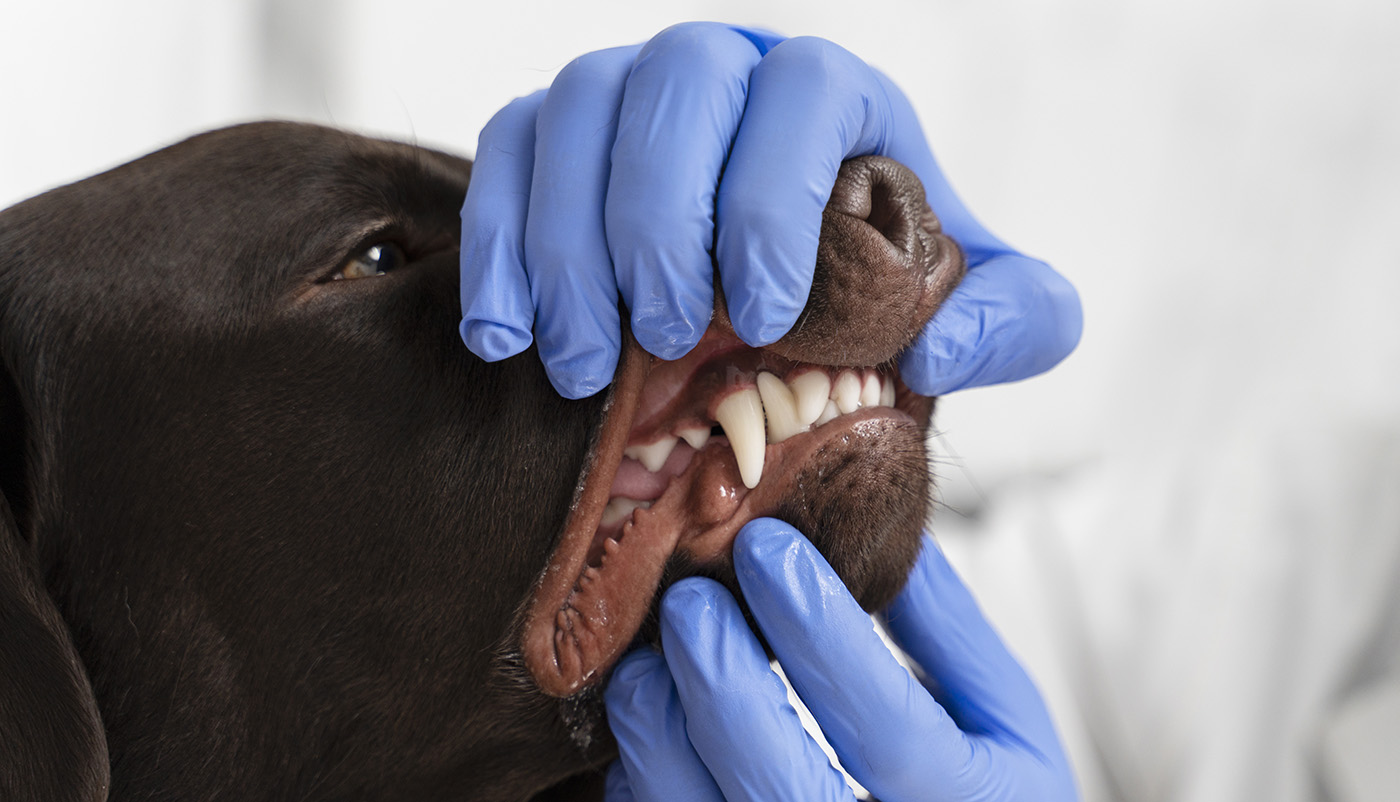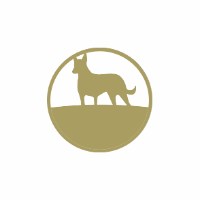Do you need to brush up on you at home doggy dental care? Implementing a regular dental routine will help prevent your dog from developing harmful dental diseases later in their life, and can allow you to catch any sinister issues before they become a major problem. Here are our tips for helping your pet keep their pearly whites.
Mouth maintenance
Check your dogs’ mouth regularly to spot any tooth and gum issues before they progress into more serious problems.
What to watch for:
Bad breath: Tell your vet if your pet has unusually strong and offensive breath
Sensitive mouth: If your dog or cat paws at their face or mouth, it could indicate they’re in pain
Loss of appetite: They may have pain when they chew or swallow food
Discoloration: Yellow or brown stains on the teeth
Gum health: Bleeding, swollen or receding gums
Missing teeth: Look for loose or missing teeth
Halitosis
Puppy breath may smell like popcorn or tuna, but if you need a gas mask when your 4-legged friend gets within close range of your face, they might have halitosis. When bacteria hardens into plaque and eventually forms tartar on the tooth’s surface, breath can go from bad to worse.
Diabetes, rhinitis, sinusitis, gastrointestinal problems, or eating foul-smelling food, can all cause bad breath. Be sure to see your veterinarian so they can rule out non-dental causes if your pet has halitosis.
Gingivitis
Bacteria and plaque-forming foods can build up on your dogs’ teeth and harden into tartar, which causes inflamed gums, otherwise known as Gingivitis. This red, swollen tissue can make gums recede and eventually lead to tooth loss. Solution? Regular brushing, and mouth health checks with your vet.
If your pet hasn’t had their teeth professionally cleaned and polished and you notice swollen or bleeding gums, halitosis or plaque build-up, you’ll need to have their teeth thoroughly cleaned and scaled to remove the plaque before you begin at home dental care.
Rub brush, repeat
The best way to complement professional dental cleanings at your vet’s is to brush your dogs’ teeth and gums daily or, at the least, three times a week.
As with training, it’s also best to introduce your pet to this essential routine when they’re as young as possible.
Periodontal disease, like Gingivitis, can occur as early as 2 years old, especially in small-breed dogs, so the earlier you can stay on top of their teeth, the better.
You’ll need a toothbrush and toothpaste specifically made for pets. Ask your veterinarian for a recommendation; most pet supply stores, online and off, carry dental items.
Caution: Do not use “human” toothpaste or brushes. Pets need smaller toothbrushes designed for their mouths and tooth paste that is safe for them to ingest.
Multiple siblings? If you have more than one dog, they each need their own toothbrush to help keep bacteria from spreading and infecting the entire pack — which is especially important as your pets get older.
Keep it clean
Although regular brushing is the best way to ensure lifelong dental health, there are other ways to help clean your pet’s choppers.
A quality dry kibble like Cobber can help scrape off tooth debris as your dog crunches away.
There are a variety of natural dental chews and toys that also act like floss to help pets enjoy optimal oral health, so add them to their dental regimen as well.
Raw bones are also a great option to help your dogs dental health, make sure you only give raw bones, no cooked bones and monitor your dog while they eat to ensure they don’t get bones stuck in their jaw or throat.
It is recommended your dog has a dental check with your veterinarian every 6-12 months to help ensure the health of their teeth and gums. Some veterinary clinic will offer a free dental assessment for your dog, so have a chat to your vet at your next visit.
Proactive dental care is the best way to help keep your dog in the best health possible, incorporating at home dental care, a quality diet and regular check ups at your vet can help ensure your dog stays happy and health, with all their teeth until they are long in the tooth.

For more information or to arrange a personalised consultation with a canine nutrition specialist, call the Ridley Customer Service Centre on 1300 666 657 or email us here.
By Jay Jayabalan, Canine Nutritionist – Ridley

